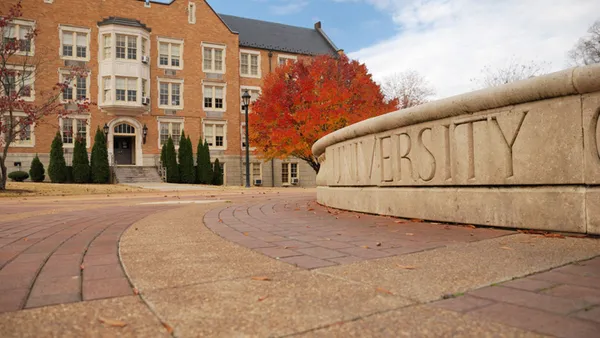Dive Brief:
-
Alaska's Senate passed a bill this week that would use funds from the latest federal coronavirus relief measure to provide free tuition for workers who were either classified as essential when the pandemic began or laid off as a result of the crisis.
-
The proposed legislation would use up to $10 million of the funds allocated to the state through the American Rescue Plan to pay for the program, which would end in 2025. If passed, students will have until the end of the year to apply.
-
Alaska's proposal is similar to one Michigan created last year to give frontline workers free tuition at the state's community colleges.
Dive Insight:
The program would allow laid-off and essential workers to receive grants covering their tuition and fees at an Alaska college, so long as they submit a Free Application for Federal Student Aid if eligible and meet other requirements. It would be open to part- and full-time students and have no age restrictions.
Annual funding for the program would be capped at $2.5 million. If the grants ran out, the bill would prioritize students demonstrating the most financial need.
Alaska's Senate was divided over the bill, with 12 lawmakers voting in favor and seven against. It has been sent to the state's House of Representatives. One Republican lawmaker who opposed the measure said the money could be better spent on other issues, Alaska Public Media reported.
"This bill, though good policy, is a thank you to those who made significant sacrifices to keep us safe and those who are affected by the pandemic," said state Sen. Tom Begich, a Democrat who co-sponsored the bill, during a floor session Monday.
Alaska would pay for the program using funds from the American Rescue Plan, a coronavirus relief bill passed earlier this year that allocated $350 billion to state and local governments to help jumpstart the economy.
Other states have rolled out similar programs. Michigan used federal relief dollars to give frontline workers during the pandemic tuition-free community college. The program, called Futures for Frontliners, drew 120,000 applications.
And at least nine states are expanding grants for short-term training programs, Stateline reported late last year. That includes Indiana, where Republican Gov. Eric Holcomb used $75 million in federal relief money to expand two grants, one of which covers tuition for certain certificate programs, according to the publication.
In Florida, a workforce development agency partnered with Valencia College to set up short-term training programs at the Orange County Convention Center. The effort was also funded with federal relief money.















